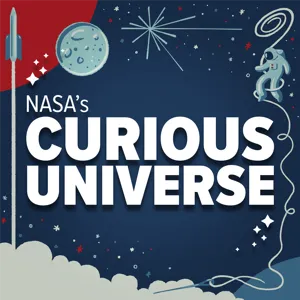What Have We Learned From a Summer of Climate Reckoning?

This summer has been a parade of broken climate records. June was the hottest June and July was not just the hottest July but the hottest month ever on record. At the same time, it looks like we are at the start of a green revolution: Decarbonization efforts have gone far better than what many had hoped for just a few years ago, and renewable energy is getting cheaper.
How should we make sense of these seemingly mixed signals? What does it mean to hold the pessimism of climate disaster and the optimism of climate action together?
There are few individuals better suited to navigate these questions than Kate Marvel, a senior climate scientist at Project Drawdown. In a conversation with guest host David Wallace-Wells, Marvel explores whether climate change is “accelerating,” why reducing air pollution will lead to more warming before it leads to less; how the human response to a changing climate can be more unpredictable than the climate itself; how witch burnings increased during the last major change in climate; what the relationship is between hotter weather and social unrest; how decarbonization sets us on track to avoiding the worst-case climate models; why, despite all the challenges ahead, there are still immeasurable benefits to fighting for a cleaner planet and much more.
This episode was hosted by David Wallace-Wells, a writer at The New York Times Magazine and the author of “The Uninhabitable Earth: Life After Warming.” He also writes a newsletter for New York Times Opinion that explores climate change, technology and the future of the planet and how we live on it.
Mentioned:
Beyond Catastrophe by David Wallace-Wells
Book Recommendations:
“On Exactitude in Science” by Jorge Luis Borges
Macbeth by William Shakespeare
Troubled Waters by Mary Annaïse Heglar
Thoughts? Guest suggestions? Email us at ezrakleinshow@nytimes.com.
You can find transcripts (posted midday) and more episodes of “The Ezra Klein Show” at nytimes.com/ezra-klein-podcast, and you can find Ezra on Twitter @ezraklein. Book recommendations from all our guests are listed at https://www.nytimes.com/article/ezra-klein-show-book-recs.
This episode of “The Ezra Klein Show” was produced by Rollin Hu. Fact-checking by Michelle Harris, with Mary Marge Locker and Kate Sinclair. Our senior engineer is Jeff Geld. Our senior editor is Rogé Karma. The show’s production team also includes Emefa Agawu and Kristin Lin. Original music by Isaac Jones. Audience strategy by Kristina Samulewski and Shannon Busta. The executive producer of New York Times Opinion Audio is Annie-Rose Strasser. And special thanks to Sonia Herrero.


